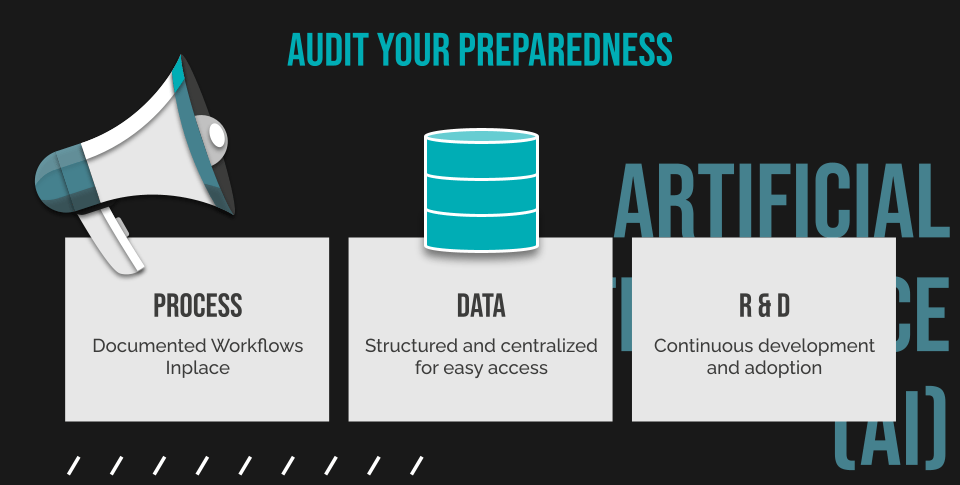Is your Business Ready for AI
A Practical Guide to Assessing your business's AI Readiness


Is Your Business Ready for AI?
A Practical Guide to Assessing AI Readiness
Many businesses today recognize the transformative power of AI (Artificial Intelligence) and want to leverage it to enhance customer interactions, streamline operations, reduce labor costs, and increase efficiency. But before diving into AI implementation, the critical question remains:
"Is my business ready for AI?"
At PIA Solutions, we recommend conducting an AI Readiness Audit before integrating AI into your operations. This ensures that your business has the necessary foundation to support AI-driven processes.
The Three Pillars of AI Readiness
For small and medium-sized businesses (SMBs) looking to implement AI, there are three essential areas to assess:
Your Processes
Your Data
Your Commitment
Let’s break these down:
1. Process Readiness
The first step in preparing for AI adoption is understanding your business processes. If your workflows are not well-defined, implementing AI can lead to inefficiencies rather than improvements.
Key considerations:
Do you have Standard Operating Procedures (SOPs) or workflow maps?
Are your processes documented and repeatable?
Have you identified which tasks can be automated and which require human oversight?
By documenting processes, businesses not only prepare for AI but also gain a deeper understanding of their own operations. This clarity helps identify areas that can be handed over to automation, improving overall efficiency.
2. Data Readiness
AI thrives on data. The quality, accessibility, and structure of your data directly impact AI’s effectiveness in automating and improving tasks.
To ensure your business is AI-ready, your data should be:
Structured: Organized in a clear format such as an Excel sheet, database, or tagged documents. AI models work best when data is labeled and categorized.
Accessible: Stored in a way that AI tools can retrieve it. Cloud storage, databases, or software solutions with open APIs are ideal.
Extensible: Designed to grow. Your data structure should allow new fields and values to be added as business needs evolve.
Use Case Example: If you're training an AI-powered chatbot to answer customer FAQs, you need clean, well-organized data to feed the model. The chatbot learns based on past interactions, but if the data is messy or incomplete, its responses will be unreliable.
3. Commitment to Continuous Learning & Development
AI technology is rapidly evolving. What doesn’t work today might have a viable solution in just a few weeks. This is why staying up-to-date with AI advancements is essential.
To remain competitive in the AI space:
Read industry newsletters, articles, and research papers.
Follow documentation updates for AI tools and platforms.
Watch tutorials and case studies to see how others implement AI.
Test AI solutions on a small scale before full implementation.
AI implementation is a continuous improvement cycle, not a one-time setup. Businesses that keep learning and adapting will stay ahead of the curve and maximize AI’s benefits.
Final Thoughts: Should You Implement AI Now?
If your business has documented processes, structured and accessible data, and a commitment to ongoing learning, then you’re in a strong position to implement AI.
However, not having these in place should not stop you from starting. Delaying AI adoption only increases the gap between you and the market, causing you to miss out on valuable opportunities for efficiency, cost savings, and customer engagement.
At PIA Solutions, we provide a comprehensive suite of services to help businesses seamlessly integrate AI and automation, regardless of their current readiness. Our Workflow Optimization service focuses on auditing, mapping, and simplifying processes to drive measurable growth and efficiency. Through AI & Automation Integration, we ensure businesses adopt modern, secure, and scalable AI-driven solutions without disrupting operations. Our Low/No-Code Development solutions make automation accessible, eliminating the need for complex coding while still delivering powerful results. Additionally, our Data Management service is designed to create custom data architectures that support your business, AI and automation.
